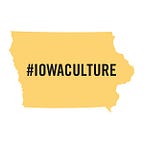After Decades of Danger, Farms Are Safer
Every year, the State Historical Society of Iowa presents the Benjamin F. Shambaugh Awards for the best Iowa history books published during the previous year.
The award’s namesake served for 40 years as the State Historical Society’s superintendent, taught at the University of Iowa, and vigorously promoted the study of state and local history.
This year, Derek Oden received an honorable mention for his book “Harvest of Hazards: Family Farming, Accidents, and Expertise in the Corn Belt,” which award juror John Brown reviewed below.
Midwest farming has always been unsafe. The weather, animals and working with hand tools were always dangerous. Farmers then added dangerous and powerful equipment along with agricultural fertilizers and chemicals to the already risky business. I grew up on a small Midwest farm and often think that my father’s obsession with farm safety made the difference between my survival and death.
“Harvest of Hazards” summarizes the period from 1940, around the time the first real farm-safety campaigns had just begun and some farms still used horses, all the way up to 1975, when modern technologies were common, along with commercial fertilizers, herbicides and pesticides, and farm-safety measures were widespread. That transition was slow, since the tight margin in farm profits made the introduction of some safety measures difficult.
The small-business entrepreneurial nature of Midwest farming and a more lax regulatory environment also slowed farm-safety improvements. Midwest farmers were often reluctant to adopt farm-safety technology, particularly when it increased costs. Workplace safety had radically improved for most Americans by 1940, but not on the farm. Nevertheless, the U.S. Department of Agriculture, National Safety Council, Future Farmers of America, 4-H, Midwest land grant universities (particularly Iowa State University) and others publicized the dangers of farming and promoted better farm safety. Despite occasional controversy, this broad coalition of safety advocates helped boost public awareness and update the liability laws that some believe have helped make farming safer.
The book’s author has a doctorate in history from Iowa State University and teaches history at Del Mar College in Corpus Christi, Tex. His well-written compilation of information from scattered sources is now a key part of U.S. agricultural and occupational safety history.
— Reviewer John Brown of Johnston has served on the State Historical Society of Iowa Board of Trustees since 2009.
